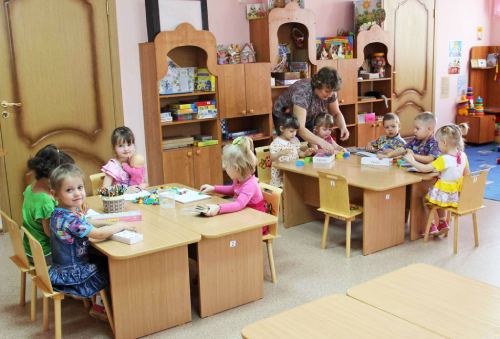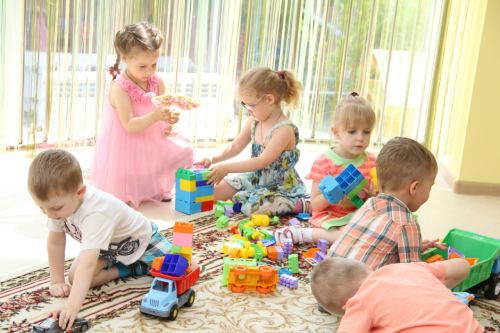Emotional recovery after childbirth
This chapter is from the book “Healing Childbirth”

Emotional recovery after childbirth. When the hormonal history is in order, when the body has enough everything and it is healthy, everything is easier with emotions and psychological state. That is why I put physical recovery first. But the emotional is also important. Including because it affects the physical. And because the condition of the newborn depends on it. And also family relationships...
An emotionally fresh woman is like a exposed wire. It's like she's naked. Or even without skin. Sensitive. Fragile. At some limit. She relives events that happened not so long ago. This is why the birth needs to be closed. To move from one state - a pregnant woman - to another - to become a mother and again just a woman.
It is important to have a warm and non-traumatic environment around you. That's why you have to set the rules! Do not do it as is customary, but do it in a way that is comfortable for you. To you! Not your husband or your mom. And you! After all, a small child depends on you!
- Should you make a beautiful statement and invite everyone there? Should not. If you want, if it gives you strength, why not? But if you don’t want to, but “have to”?
- After discharge, should everyone be taken home and given a treat? No! To hell with such traditions! The last thing you need right now is crowds of people to whom you owe something. Again, you can if you want it yourself and someone else will organize the table.
- You are not obligated to host guests! You don't have to organize a viewing party! People have idle interest, and you need to restore your strength. We can see your child later. When you're ready.
- Moreover, you can set boundaries with your loved ones if it is currently causing you pain. For example, your mother comes every day “to help,” but along the way she constantly points out to you that you are a bad mother and should not lie down, but should crawl and wash the floors. Or the mother misunderstands her help - she comes to play with the baby so that you do not lie down, but crawl around the house. If you cannot set boundaries in a way that makes you feel comfortable, then it is better to refuse such help now.
- Be selfish in any situation. This is needed now. Choose the solution that will make you happier. Even if someone doesn't like it. Your emotional state affects the child, and you should think about this first. Adults can cope with their emotions on their own, without your help. Yes, someone will be offended (these will be immature adults), someone will understand. It doesn't matter. Instead of “what will people say,” remember “what is most important for my baby?” He needs a calm and happy mother.
This does not mean that you do not respect or love anyone! This means that you have the right to build your motherhood in a way that is comfortable for you.
And in this case, you care not only about yourself! But also about the child who needs a calm, joyful mother most of all.
For example, in our family there is a rule of a moratorium on visits for the first 2-3 months after childbirth. At this time, we are getting used to each other, reassembling our family in a new composition. The help of loving grandmothers is wonderful, but it is at this moment that I do not want it. It prolongs the adaptation time. That's why I never call my mother to help immediately after childbirth, for example. Not earlier than in a month or two or three.
But for others it may be different - we are all different. Different relationships, different experiences. And you need to understand what do you want? How do you feel more comfortable? After all, a new little person depends on your comfort.
What else is important in emotional recovery? The relationships you have around you are important. It is important to let go of all grievances. It is important to live and accept your birth experience.
- close the birth. This means living through all experiences and letting go. Some go to a psychologist, some get swaddling, some just sit with a friend in the evening and cry. Let go of all your expectations and discrepancies with them. Let go of the feeling of guilt - if you have it. Let go of everything that prevents you from enjoying motherhood!
- experiencing feelings and events of the past that suddenly overwhelm you. The birth of a child exposes many different traumas and experiences. Don't be afraid to work with it during this period! Take any meditations, lectures, exercises. Listen and live. Cry if you're crying, scream into the pillow, if you're overwhelmed, beat the sofa... It's great if you find a good psychologist and can start working with him.
- establish breastfeeding so that it does not cause you pain. That is, we need to deal with attachment, hot flashes, and lactostasis. Otherwise it will poison your life and your motherhood. What emotional well-being is there!
- It is important to get into the rhythm of caring for your baby, understanding what, when and how. It will be easier for you, it will be easier for him, you will both sleep better, which means you will be kinder and fresher. Learn to understand the baby and help him. Otherwise, his scream will make you nervous. What a recovery this is!
- communication with nature! There should be a lot of nature in your life. Even more than before. Its resources and energy are what you especially need now. Feeling depressed? Go outdoors. Even just take a walk with a stroller or sling. To the parks, to the river, to the forest, to the sea. Anywhere. In summer, wander barefoot on the ground, lie on it, absorbing its energy and power; the earth is also a mother, and she will support you like no one else.
- accept your body after childbirth and learn to thank it. This is difficult for many. But it's important. Start the day with self-care - comb your hair - even if you are holding a baby, shower, face cream, do a little exercise. Rub delicious creams and oils into your body and surround it with care.
- focus on gratitude. Every evening, collect gratitude for this day - what can you say thank you for? For the wonderful baby, for the husband, for being alive and well.
- make yourself happy! And not just food. I know that the most accessible joy after childbirth is something tasty. But this is fraught with a range of health problems. And for the figure. Look for other ways to please yourself! For example, new towels in the kitchen, new recipes, new interests. Start studying something - an hour or two a day, from home.
- the atmosphere at home and the relationships that surround you. Yes, very often after the birth of a child, parents have a crisis in their relationship. Even if the child is not the first. The old familiar way of life is destroyed - and something new is formed. And you need to get used to it, readjust, accept it. It takes time and patience. Sometimes conflicts can escalate. And your task is not to “shut them up,” but to live without squeezing them. By talking, communicating and creating a new reality for your family together.
- move! 2-3 months after giving birth, your movement may already be active. And the best thing, always and for everyone, is walking. For example, with a stroller or sling (but if they are very long, then a stroller is better). When you move, hormones of joy and pleasure are produced. A great way to unwind and relax!
- communication. There should be a lot of communication in your life. This is your way to reduce stress. These could be friends, neighbors, colleagues. Anyone. The main thing is that you do not feel isolated. Connect with those who inspire you. Someone you can whine a little, someone you can laugh with. And track your condition afterwards - this way you will understand what kind of communication is good for you.
What can complicate your emotional state after childbirth?
- deficiencies of important elements after childbirth. For example, if you have had bleeding, you may have iron deficiency anemia. If you are a vegan, you may be deficient in B-12. And even if you eat meat, that doesn't mean you don't have problems with iron, B-12 and vitamin D, for example. If you were not a completely healthy person going into pregnancy, then many ailments could get worse, and the supply of necessary substances in your body could be depleted. Therefore, I recommend having a check-up a month after giving birth, getting tested and seeing what your body is asking for now.
- hormonal imbalances - in the functioning of the thyroid gland, for example. This story also requires checking and consultation with a good specialist if you are not feeling very well.
And this again refers us to the first point - it is important and very important to pay special attention to your health after childbirth!
If you are healthy, it will be much easier both in everyday life and emotionally, and your figure will come into shape - in due time, not in one day, but still. When you are healthy, you have energy, a positive attitude, and a desire to change. And the main thing is that you have the strength to do it.
Therefore, I will repeat it again. Pay special attention to your health! Without any “buts”. Without any “but with our mothers everything was more complicated” and “why whine and dig into yourself, I took the child and ran on.” No. Stop. Talk to your body. Work with those places that raise questions for you.
Childbirth is not a walk in the park. This is a serious load. And after them you need to recover. Each conditional “ruble” invested in your restoration will bring you conditional “millions”. Childbirth can rejuvenate you, become your rasayana, or completely destroy you. And all this depends not on pregnancy and not on the birth itself. And on how you will recover.
Emotional recovery after childbirth
What a dad-to-be needs to know about pregnancy
We have compiled these recommendations specifically for future fathers.
The main task of a man during this period is to be observant and caring. After all, now your wife needs increased, double attention so that there is enough for both mother and baby. He already feels everything and will soon hear you.
1. The expectant mother needs care. What just recently was easy for your wife can now cause a lot of trouble. Weakness, pain in the lower back, big belly prevent you from walking quickly and prevent you from bending over. Be careful: tie your wife’s shoelaces, place a pillow under her back when she is sitting, pick up a fallen spoon. Be ready to help your loved one.
2. It is better for a pregnant woman to refrain from some household chores. While waiting for a baby, many chemicals can cause allergies in a woman, and fumes can harm the fetus. Take charge of cleaning the bathroom and toilet. See what else you can do to help. For example, watering flowers that stand on high shelves, wiping dust... Now it is harmful for your wife to make sudden movements, stretch, bend over - protect her from this.
3. Major renovations are not always a good idea while expecting a baby. Many families, having learned about the imminent arrival of the baby, hastily begin repairs or think about moving. The most important thing for a mother is comfort and peace. She doesn't need any unnecessary worries. If possible, postpone the implementation of grandiose projects; do not schedule global affairs at this time. Well, if the family council decides to start repairs, take it upon yourself. The wife will probably have to live with her parents for some time.
4. Emotional instability for the expectant mother is part of a healthy pregnancy. It is known that while expecting a baby, a woman’s character changes. This happens due to hormonal changes in the body. The expectant mother does not always control herself and her desires. Try to be understanding about her condition, excitement and worries. Be helpful, gentle and affectionate. Yes, you may have to listen to something unpleasant more than once. To defuse the situation, look at everything with humor. A good joke will lift everyone's spirits.
5. Lack of attention is a temporary phenomenon. Some dads feel like they have been completely forgotten, because all the mom’s thoughts are now focused on the child. Don't be offended by your wife. Try to spend as much time together as possible. No matter how busy your life may be, find opportunities for walks and relaxation together. Every evening you can take a short promenade, and on weekends you can get out of town. Buy a pool membership and go there with your wife. Try to master at least basic massage: this will help the woman relax and, during contractions, relieve pain.
6. Go to the doctor with your wife. Every time an expectant mother goes to see a doctor, she is nervous. Even if the pregnancy is going well, the woman is still worried. Your wife may need to consult with you to make a decision or simply share her experiences. If you cannot go to the clinic with your spouse, then do not forget to find out about the results of her visit to the doctor every time. The health of your mother is also the health of your future baby. Interview your friends, find out about good clinics, specialists and, if necessary, decide together on an additional consultation.
7. Discuss and care about intimate relationships. Quite a lot of couples refuse sex during pregnancy. Because of this, and even before that, simply because of a changed figure, women feel unnecessary and unattractive. If there are no contraindications, have sex. Remember: now, more than ever, it is important for a wife to feel wanted. If she refuses, that's normal: during pregnancy, libido goes through some dizzying ups and downs. Be patient if she doesn't really want to make love today - perhaps tomorrow you will need the saved energy.
8. Prepare for childbirth and meeting your baby. Both mother and father must be prepared for childbirth. The best preparation is to attend a school for new parents. Put things aside, find time and go to classes at this school with your wife. In this way, you will support the expectant mother and receive a lot of useful information yourself. And in case of unforeseen circumstances, you will be able to provide first aid.
How will the baby look and behave after birth?
Some important changes occur in a baby's body as she moves from the comfort of your womb to the outside world. When she cries and takes her first breaths, oxygen and blood flow through his lungs as they expand.
It is normal for your baby to look blue or purple in the first few minutes after birth. The newborn's color will gradually turn pink within 7 to 10 minutes after birth, but his arms and legs may remain blue for up to 24 hours. The blood vessels on his arms and legs are very small, so his blood reaches his arms and legs and changes color to pink.
If all is well, most babies cry immediately after birth.
Most then quietly stare with large open eyes at their surroundings before falling asleep. It is normal for babies to fall asleep, but some may be awake and want to feed.
If your baby seems ready, you can breastfeed within a few minutes of birth.
Summer with Grandma: Long-lasting Consequences
It happens that it is in the summer that three generations of a family gather under one roof (at a dacha, in a village, in their hometown): mothers bring their children to their parents (less often, to their husband’s parents).
When a person finds himself in his own “family of origin,” he sometimes begins to behave in a different or completely different way than usual. Often he himself does not understand this and does not track it. There can be many options, but two main ones:
- the return of emotional and behavioral habits that a person has long abandoned. This option is more common when the parents' family is perceived as good and correct;
- increased internal confrontation and conflict behavior towards parents. This option happens more often when the relationship with your parents is difficult, and it is still important for you to prove something to them.
Such changes in the behavior and condition of one of the spouses (the one whose parents went on vacation) cannot but affect the relationship in the couple.
And grandparents spoil their grandchildren and (or) point out to parents the shortcomings in their upbringing...
Plus an unusual way of life and the feeling that you are not the mistress of the house, and it is difficult for you to be perceived as an adult.
And there is also a rare option: when it’s nice and cozy at home, and the mother falls into childhood so much that it’s not easy for her to return to an independent life, everyone wants to be under the wing of care...
In general, after a month of living with your parents for some time, you will return to “your normal” in any case.
And the spouse who observes changes in his wife’s condition after communicating with her relatives is also in a difficult position. Often he doesn’t know not only how to react, but also how to let his better half know that lately she doesn’t look much like herself, but looks like either a belligerent teenage girl or a mother’s daughter. Many husbands have their own difficult relationships with their father-in-law and mother-in-law, which does not add adequacy to their behavior.
Of course, I’m exaggerating, and everything may not be so terrible, but if you were visiting your grandmothers and feel tension in your relationship, then you should:
- ask your spouse (kindly), if he doesn’t want to tell you anything about this;
- forgive your parents, yourself, and husband for all the summer “inconsistencies”;
- stop looking for those to blame;
- Do not make children into tug-of-war ropes.
How parents can help their child get into kindergarten mode

Adaptation to kindergarten is needed not only for those kids who went to it for the first time, but also for those who have not attended for a long time. Children learn discipline for a long time, but quickly lose the habit of it. And therefore, adults - educators and parents - need to be able to guide the child in the right direction and help him integrate into the team and routine of the kindergarten without stress. To do this, parents need, first of all, to start with conversations with the baby and with their own example.
Tell your child that everyone (both adults and children) must get up early to go to work, school, or kindergarten. After all, for kids, going to kindergarten is also a kind of work. Summer and vacation - the time given for relaxation - sooner or later pass and you need to go to kindergarten again, live in the interests of its team, learn something new.
In order for the child’s adaptation to kindergarten after the summer to be more successful, parents must follow some principles and rules.
- About two weeks before kindergarten, take your baby home if he is visiting.
- Start teaching him to go to bed earlier and get up earlier. You don’t have to do this right away, but shift the bedtime and wake-up time, gradually bringing it to the one you will stick to when the baby goes back to kindergarten.
- Gradually limit your child's liberties - unsystematic TV watching and walks. Write down the daily routine so that the child knows when he will go for a walk, how much time a day to watch cartoons, and what time to eat.
- Try to give your kids some rest during the day. If in the summer he was allowed to stay up during the day, now insist that the child rest a little. I didn’t necessarily sleep, but at least I lay down and listened to music or an audio story. Or read him a book.
- You shouldn’t immediately overload your children with sections or activities, but active recreation won’t hurt. If possible, take your child to the pool or early childhood school twice a week. Usually in the second half of August they already begin to work. More often than not, it is not worth it so that the child does not get tired when he goes to kindergarten.

- A child needs to walk outside for at least 4-5 hours, but not until late, so as not to get tired before bed.
- Adequate sleep is important for psychological and physical health. Therefore, parents should carefully monitor their child’s sleep.
- Before starting kindergarten, try to feed your child only healthy foods. All liberties with soda, chips and sweets should be left in the past. The child should go to kindergarten with a healthy stomach.
- If your child has only communicated with his family all summer, then try to adapt him to communication with his peers. Visiting groups in “development” or dance schools, walks in the sandbox will finally help him establish contact with kids like him.
- If a child has difficulties communicating or does not know what to do in a given situation, help him with advice. Try playing out the problem with him and see how he handles it. Refer him if necessary.
- Constantly praise your child and encourage his initiative in every possible way in drawing, modeling, designing, or in reading and counting if the child already knows letters and numbers and will go to the preparatory group.
- Try not to put pressure on him if he refuses to do something. Perhaps he doesn't feel well or is just tired. Talk to him and find out the reason for the refusal. In any case, (even if it’s simple laziness) stimulate him by promising a reward for completing a particular task.

- In the first days after visiting kindergarten, ask your child how he spent the day, what he did, what he ate, and how his relationships with his friends and with the teacher developed. In turn, let the parents tell you how they spent the day at work. A trusting relationship with your child will help you better understand the child’s feelings and the degree of his readiness to attend kindergarten.
- If a child has a hard time returning to kindergarten, then it makes sense for parents to take him only half a day to begin with. Gradual addiction does not hurt the baby’s psyche as much, and adaptation will be painless.
Parents need to remember that all children are different. Some people adapt quickly and are calm about attending kindergarten, while others need time and patience from adults (teachers and parents) to get used to a forgotten (and therefore new to him) routine and team.
It's great to relax, but...
Many families live in completely different modes for 2-3 months - mother and children are on vacation, and father is at work in the city. This situation is absolutely understandable, and there are no options. These are the circumstances of the summer life of a “single-career” family. But a long separation can leave its mark on relationships in the first weeks after reunification. Simply because a person is such a creature - he gets used to everything, adapts, cannot help but get used to it. The ability to adapt and get used to is one of the basic abilities of the human body.
Yes, you ate a ton of salt together, and you have many years of living together behind you. But there is a habit and there is a “habbit” - rarely anyone likes to suffer for a long time, and without meaning to any betrayals and “falling out of love”, during the time of life without each other, one of the spouses or both of them can form new small habits that are not easy to part with : calmly watch the news or football, or freely chat with friends about everything, or hang out on blogs.
Over the months of summer, everyone got used to the atypical situation: mom - to the fact that her husband is not around every day, children - to how dad behaves and what dad loves and demands, and dad - to the fact that there is so much noise and worries around and in general so much Total…
And it also takes time to “get used to it” again.
The period of adaptation to all major life changes almost always lasts from 3 to 6 weeks. This means that the child will behave completely differently than usual. What might this look like?
Happy Birthday to 5 month old baby
Day after day has passed for 5 months already. The little sun is shining in your house.
***
On this happy birthday I will congratulate him, I will send congratulations to Little’s parents.
***
Let him grow up happy, let him be healthy, let him please you with something new every day.
***
You give him both love and affection. Let your child turn your life into a fairy tale.
***
Five months have flown by, like one fine day. May good luck follow your child, walk yours like a shadow.
***
I wish health and success to the baby. Let it bring joy only to your dear Mother and Father.
***
You are 5 months old today, Your heart is so happy when you smile.
***
My sunshine, my little golden one, I wish you happiness, my little blood.
***
Grow up little one, gain strength, For you I ask God for a happy fate.
Childbirth and relationships
The 40 weeks of waiting are over and labor is about to begin. The moment is joyful, exciting and anxious. What an expectant mother should do is obvious and understandable. But how should a dad behave?
1. Preparing for childbirth. A woman preparing for childbirth really needs reliable support and help. This means that the husband should be nearby.
1.1. The husband needs to take care of all the little things, right down to a top-up mobile phone account and a refueled car tank.
1.2. He needs to know everything about how childbirth takes place.
1.3. In the last three to four days before the scheduled date of birth, a man should be very collected - by the way, taking care of his wife will help him cope with his own anxiety.
1.4. A couple of weeks before this joyful day, it is worth consulting with a doctor about the composition of the first aid kit in the car in case your wife becomes unwell on the way to the maternity hospital. All these measures are optional, but include the father in the process of preparing for childbirth in the role of protector, support and support.
2. How to help the expectant mother during childbirth.
2.1. A man who decides to attend the birth must clearly know his role and place. He needs to support his beloved and be at the head of Rakhmanov’s bed. As soon as the doctor asks him to leave the delivery room, he must do so. Domestic obstetrics specialists do not like excessive participation of fathers in the process. They are at best an annoying nuisance for doctors, and at worst a serious headache. You can only stand at the head of the bed and help your wife. The doctors will be very grateful to the dad if he duplicates their instructions to the woman in labor, because it happens that she goes into a special state of consciousness and hears only the voice of her husband, for example, but not the doctor. It will be easier for a woman if he is collected, calm and filled with trust in the doctor and midwives.
2.2. If dad remains outside the door of the maternity hospital, then he also has an important task - to be in touch, mobile and accessible. You may need medicine, things, food, or just the opportunity to look outside and see him in the middle of a flower bed under the windows.
Check with the maternity hospital reception for a list of necessary items and buy them at pharmacies and supermarkets.
3. Postpartum stage
3.1. Here you need to focus on the rules established in the maternity hospital and be in touch. Perhaps your wife urgently needs cream, juice or something else. It may also happen that she just needs her husband to call and visit her (stand under the windows with a bouquet of flowers).
3.2. He also needs to do or organize a general cleaning of the house, wash and iron clothes for the newborn, and screw a changing table and chest of drawers to the wall.
3.3. Make a large-scale purchase of detergents and cosmetics for newborns, find a doctor who will patronize the child on a private basis, if this is important to you.
Sometimes mothers do not give due importance to the feelings of the future father. In order for him to cope with his role as a father, the inclusion of a man in the process of replenishing the family should occur as early as possible: ideally, this is a joint project and joint dreams, as well as joint attendance at childbirth preparation courses, reading books, attending consultations with a psychologist, etc. d. Then the man will have a need to take a vacation and devote it to caring for the child, to fully participate in the life of the heir, to be a parent for him in the full sense of the word.











